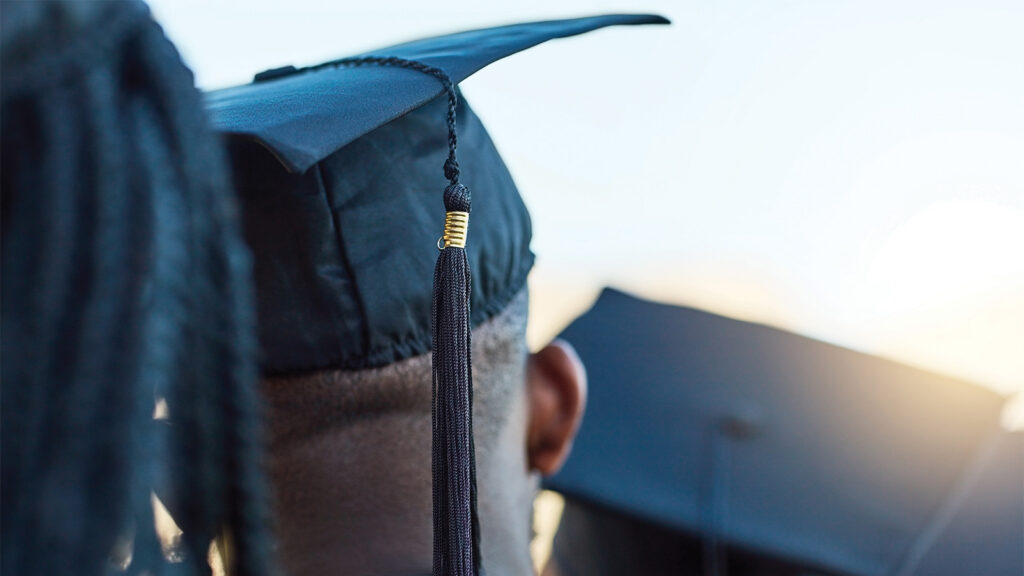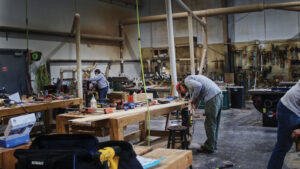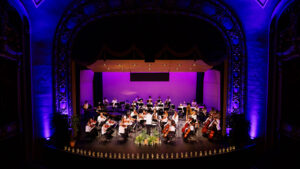I like Columbia during breaks. Restaurants are less crowded, parking spots are more plentiful, and the traffic is lighter. But I love Columbia when college is in session, and not just because it’s easier to find a babysitter. As residents of COMO, we’re incredibly lucky to have Mizzou — Missouri’s flagship university — Columbia College, Stephens College, Central Methodist University, and Moberly Area Community College in our town, providing an incredible education to more than 35,000 students each year.
These students live in our community, work in our local businesses, spend their money, and generally make this a more interesting and exciting place to live. And the impact is noticeable beyond the current student population. Columbia proudly boasts that 53.8 percent of people 25 years and older living here hold a bachelor’s degree or higher. (The national average sits below 35 percent.) This impacts everything from the types of businesses that want to locate here to the kinds of entertainment the area attracts. It impacts everyone who lives here, not just alumni of these incredible institutions.
Unfortunately, not everyone sees this positive impact, and our colleges and universities are facing an uphill battle. A recent Gallup poll found that Americans’ confidence in higher education has decreased substantially in less than a decade. In 2015, 57 percent of U.S. adults responded that they have “a great deal” or “quite a lot” of confidence in higher education. Today that number has fallen to 36 percent. Perhaps even more concerning is the increase in those with “very little” confidence; it was just 9 percent eight years ago and is up to 22 percent today.
Why the dramatic change in public opinion? It could be the increased cost of attendance and the student loan crisis. Or maybe it’s the college admissions scandals of the super-rich or the viral stories of college dropouts becoming billionaires. These stories and others like them seem to have converged into a narrative that higher education is too expensive and not worth it for many people.
Despite these challenges and many more, Columbia’s colleges and universities continue to meet the needs of students and the region’s economy. They’ve survived a pandemic and responded to changes in technology, meeting students where they are with different delivery methods. All while working hard to keep college affordable and responsive to local workforce needs.
It’s important to ask questions about the value of a college degree, but the fact remains that education beyond high school is still the difference-maker for most Americans. According to a 2021 Forbes article by former Missouri State University President Dr. Mike Nietzel, adults with a bachelor’s degree have lifetime earnings of $1.2 million more than those with only a high school diploma. For those who earn an associate degree from a community college, it’s a $400,000 increase in lifetime earnings.
That seems like a pretty good value, especially for the thousands of Missourians who use the A+ Scholarship.
Often overlooked, community colleges are accessible and affordable higher education institutions that provide tremendous opportunities for individuals to gain knowledge, acquire skills, and establish a pathway for further education. Short-term training and specialized courses taught at community colleges open the door to significant workforce opportunities. Considering the rapid pace of change in business and the workforce, we know that today’s students need skill sets and critical thinking abilities that will prepare them for careers we can’t even conceive of today.
As we enter a new academic year, I hope you’ll join me in fiercely advocating for the higher education institutions in Columbia and beyond. They need your support now more than ever.

Brian Millner is the President/CEO of the Missouri Community College Association.










